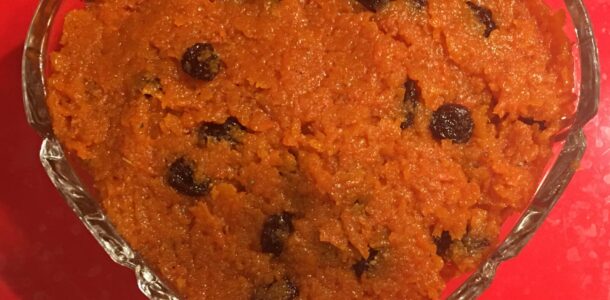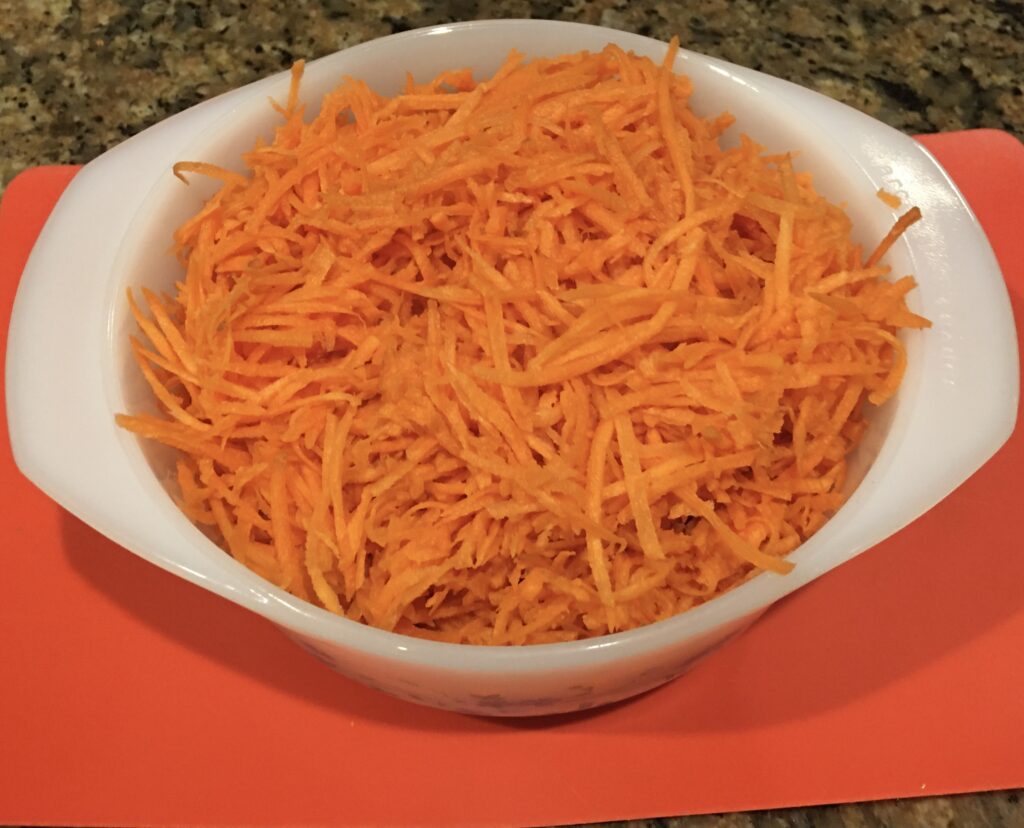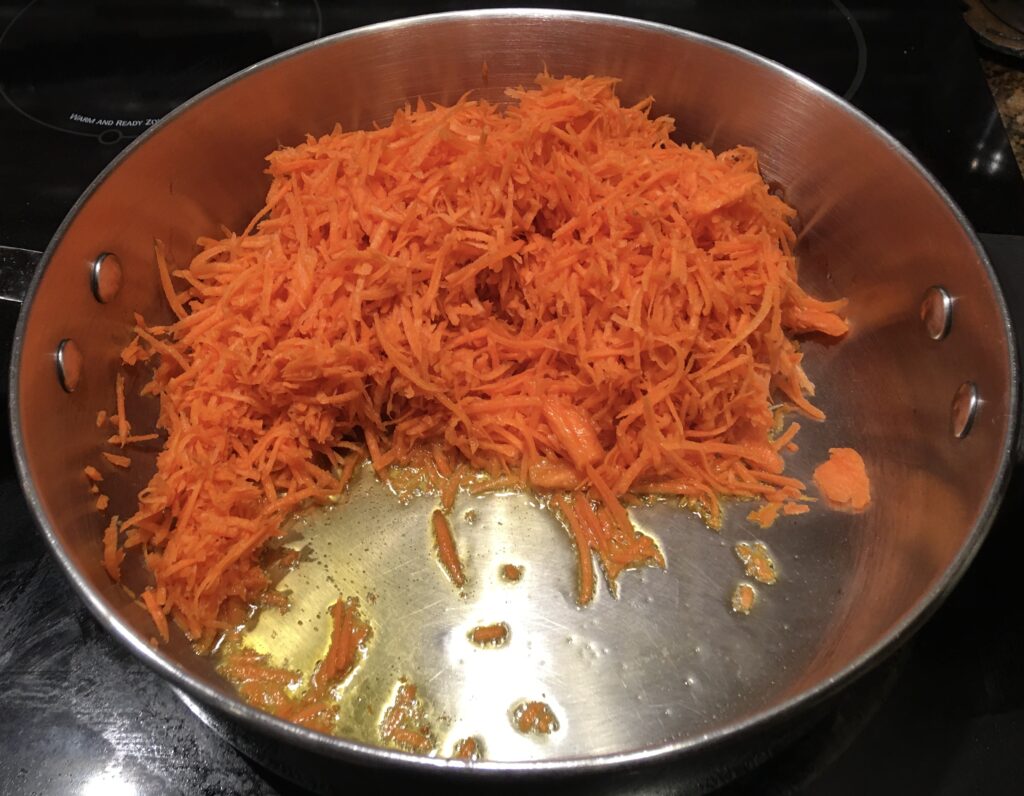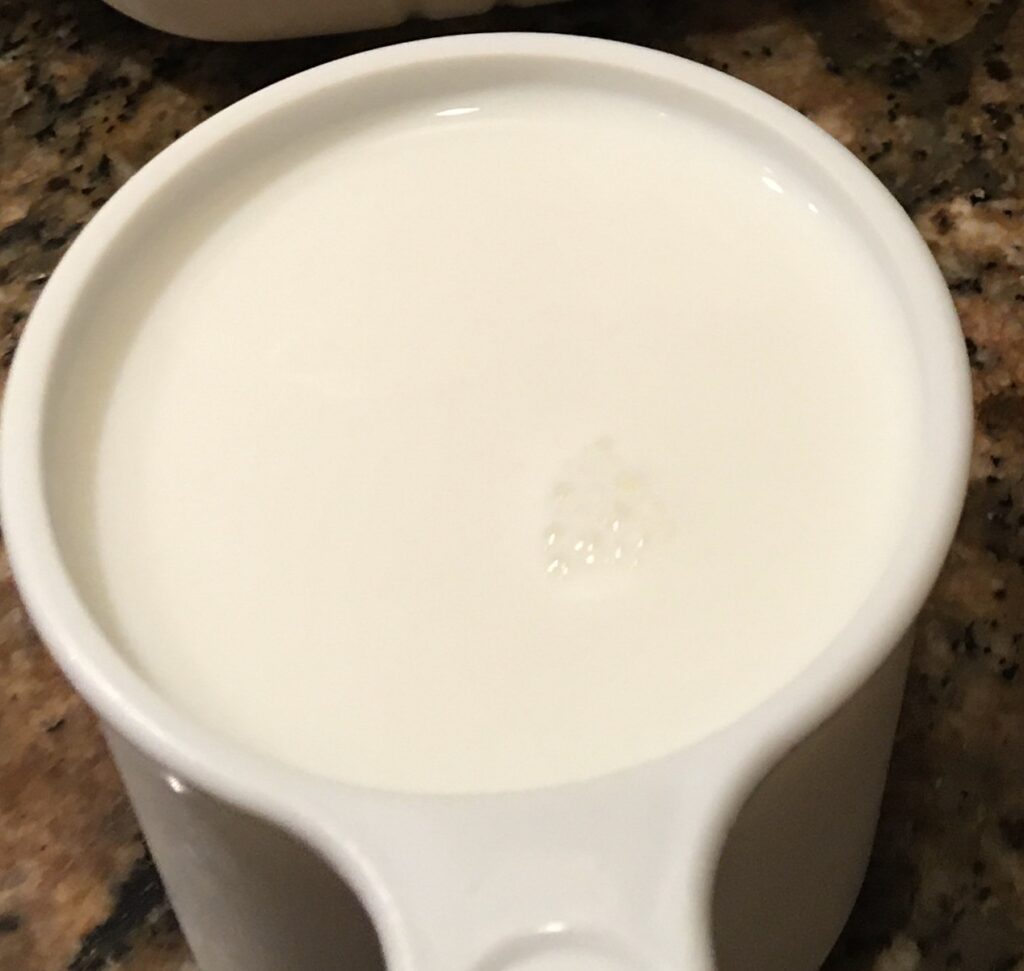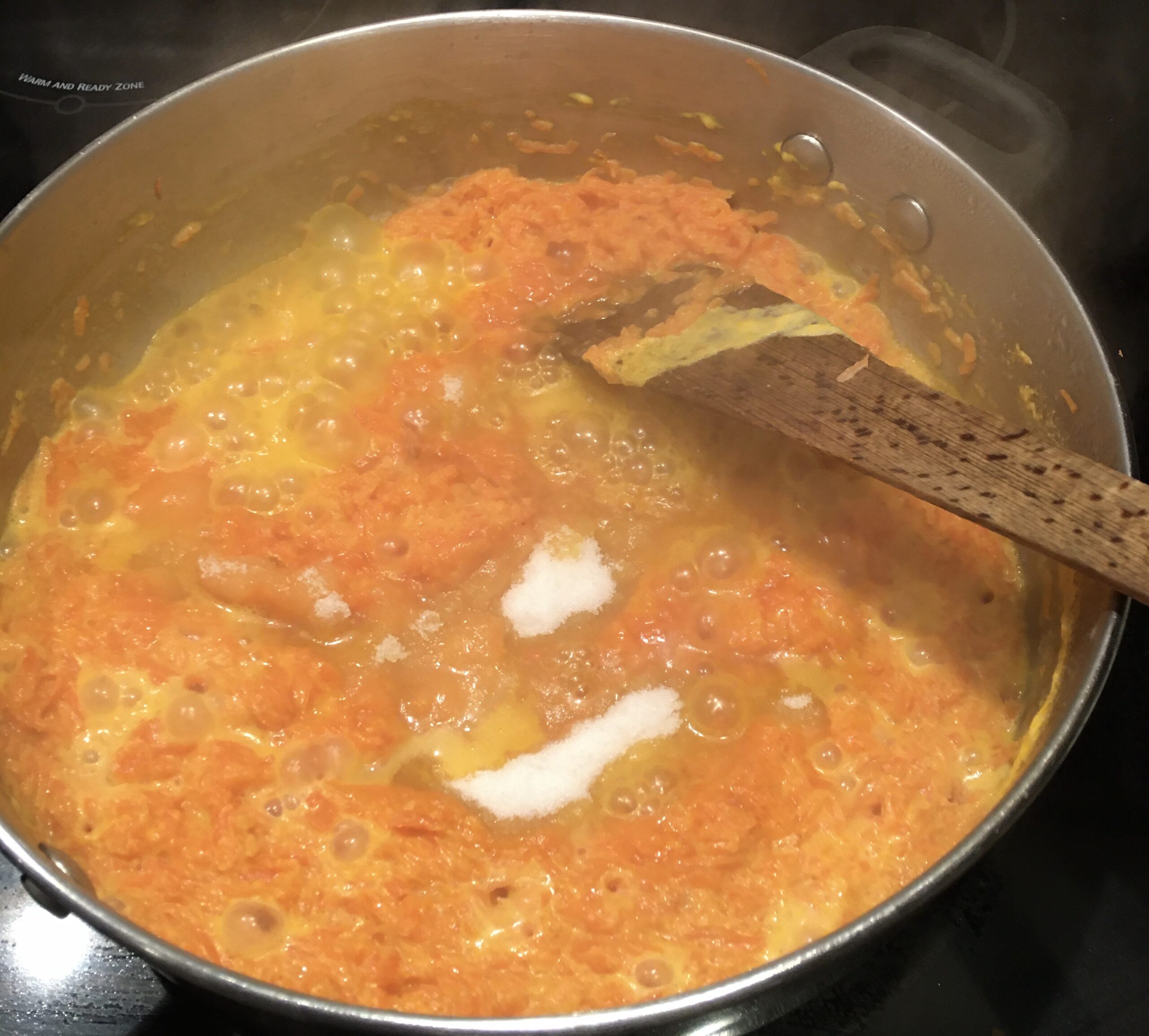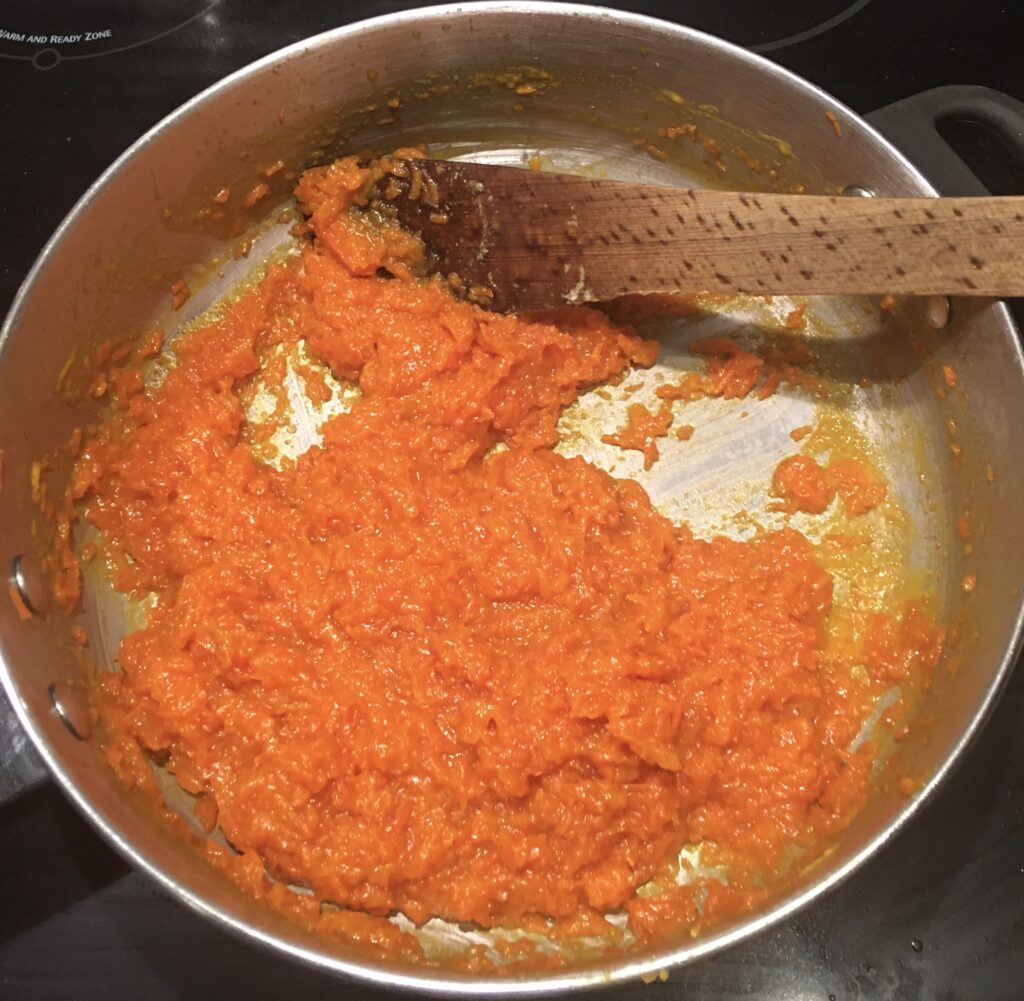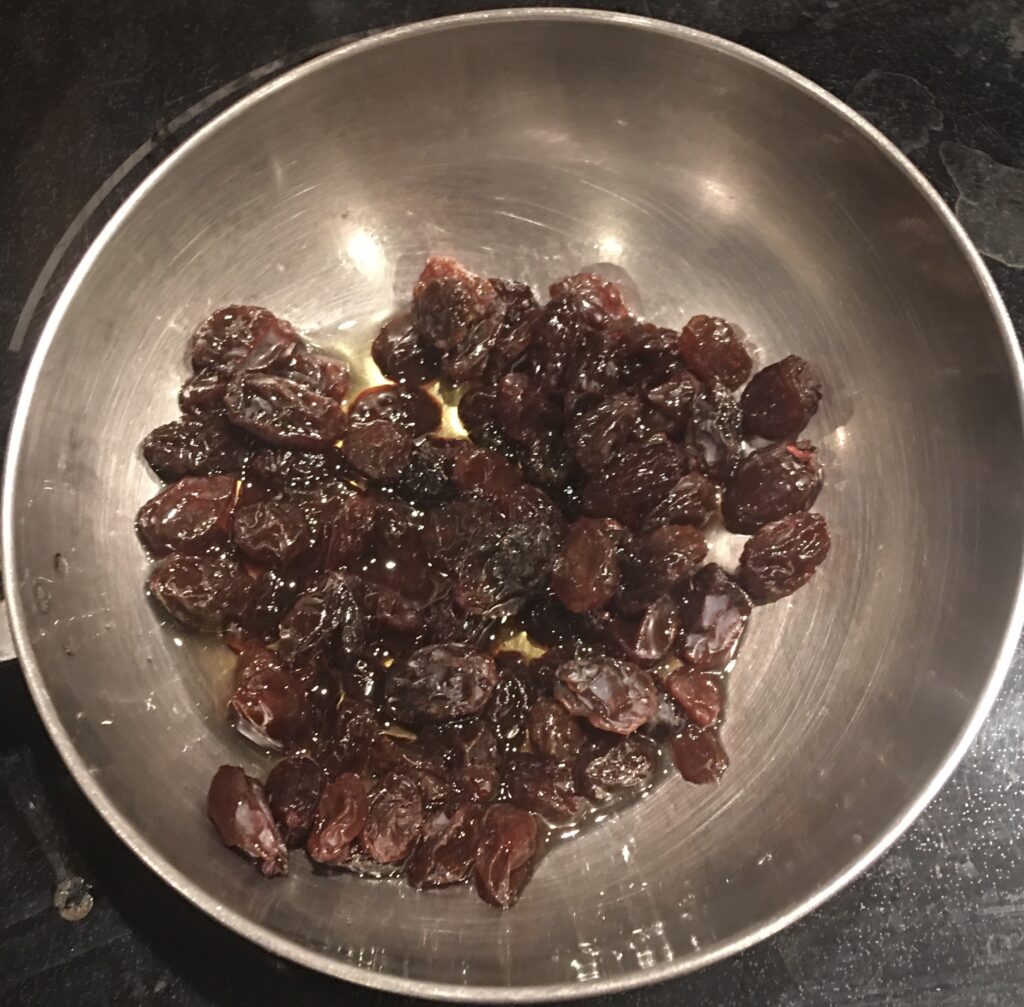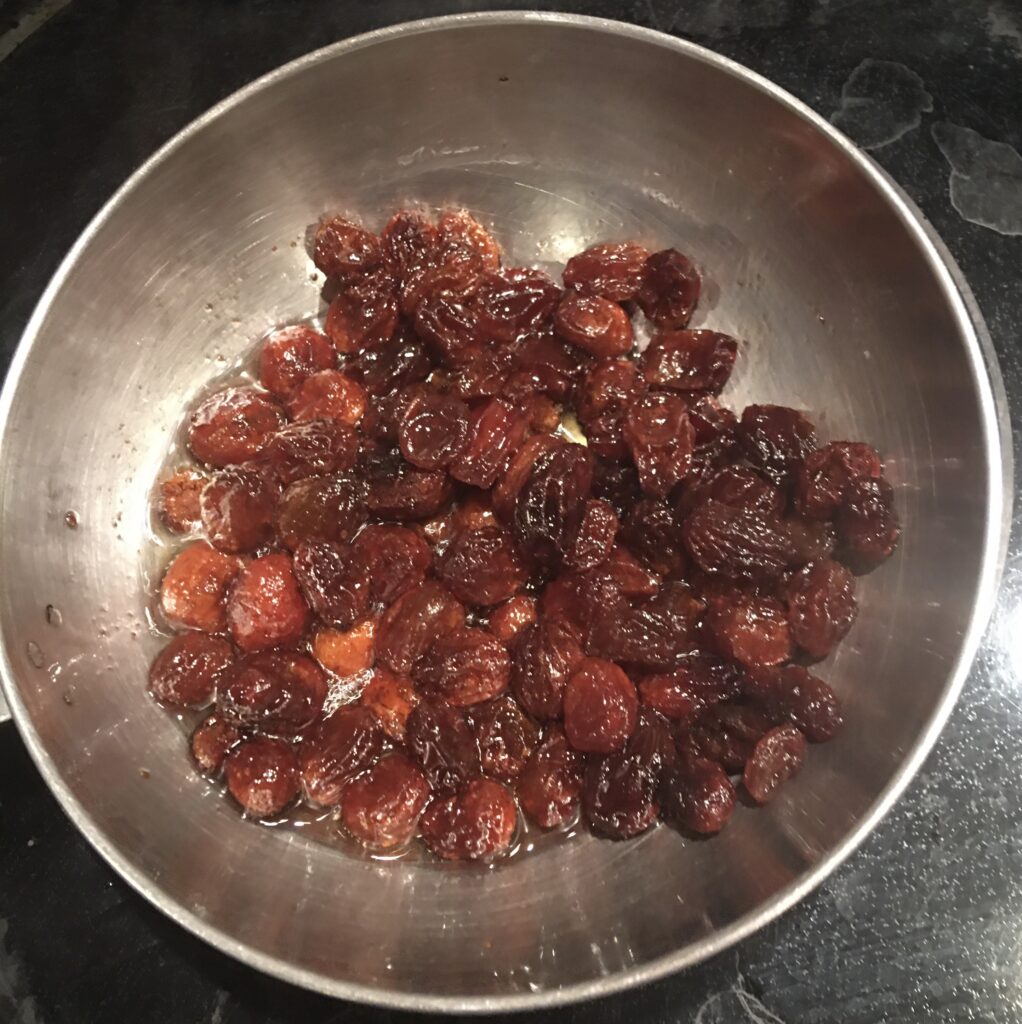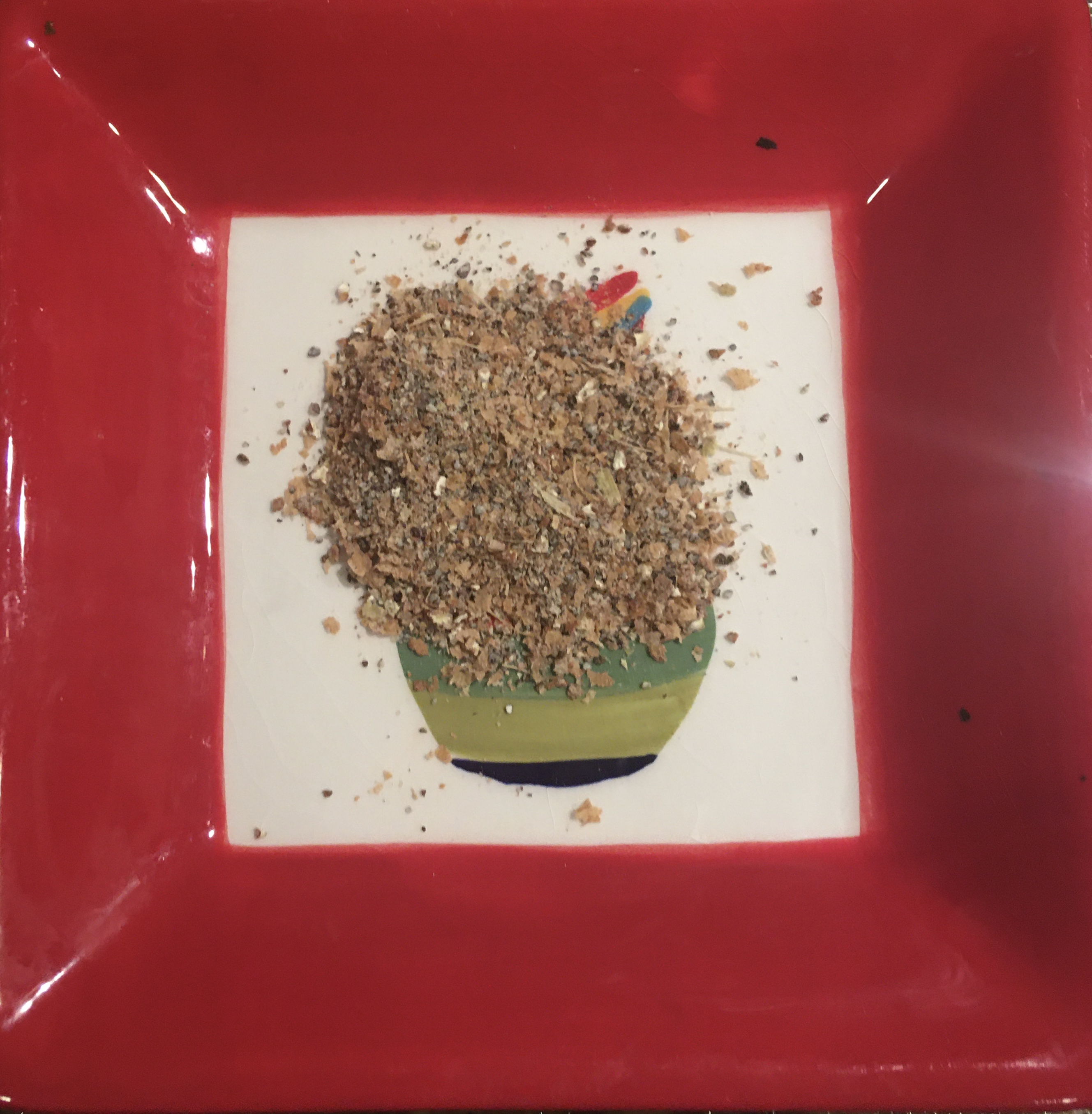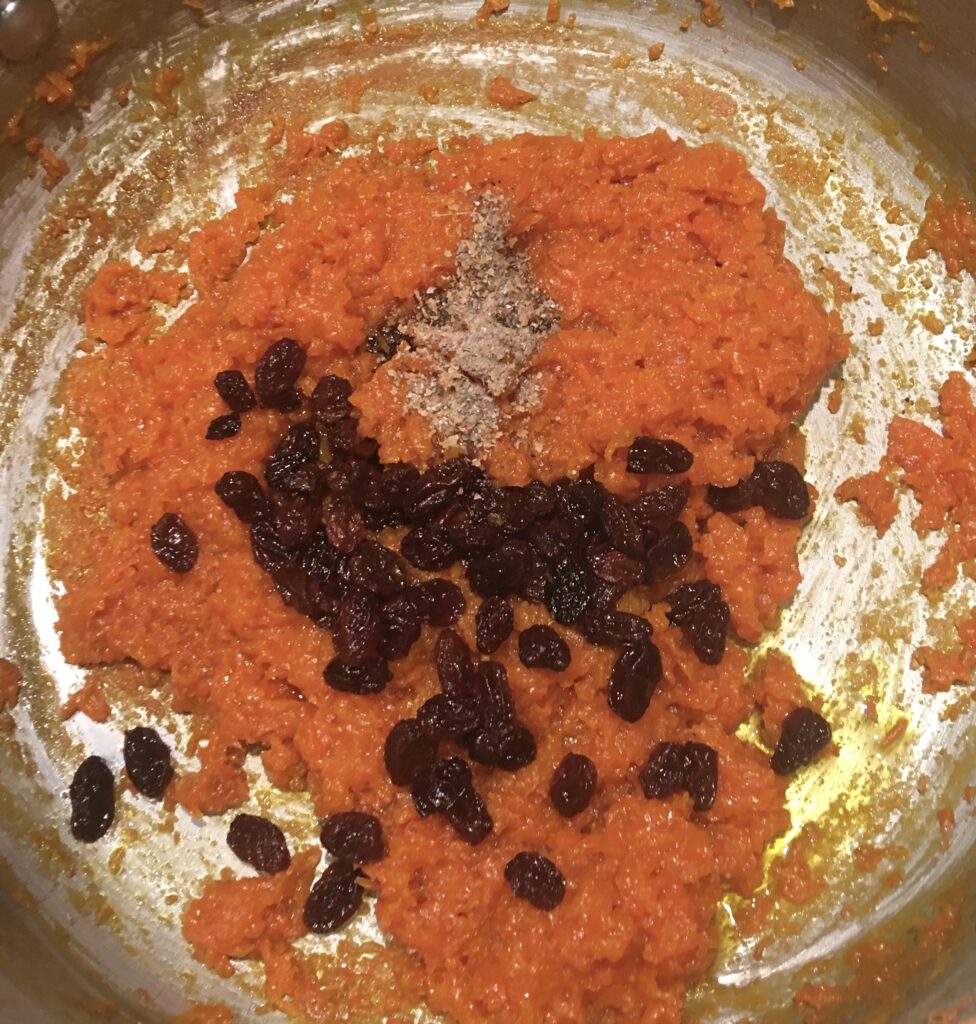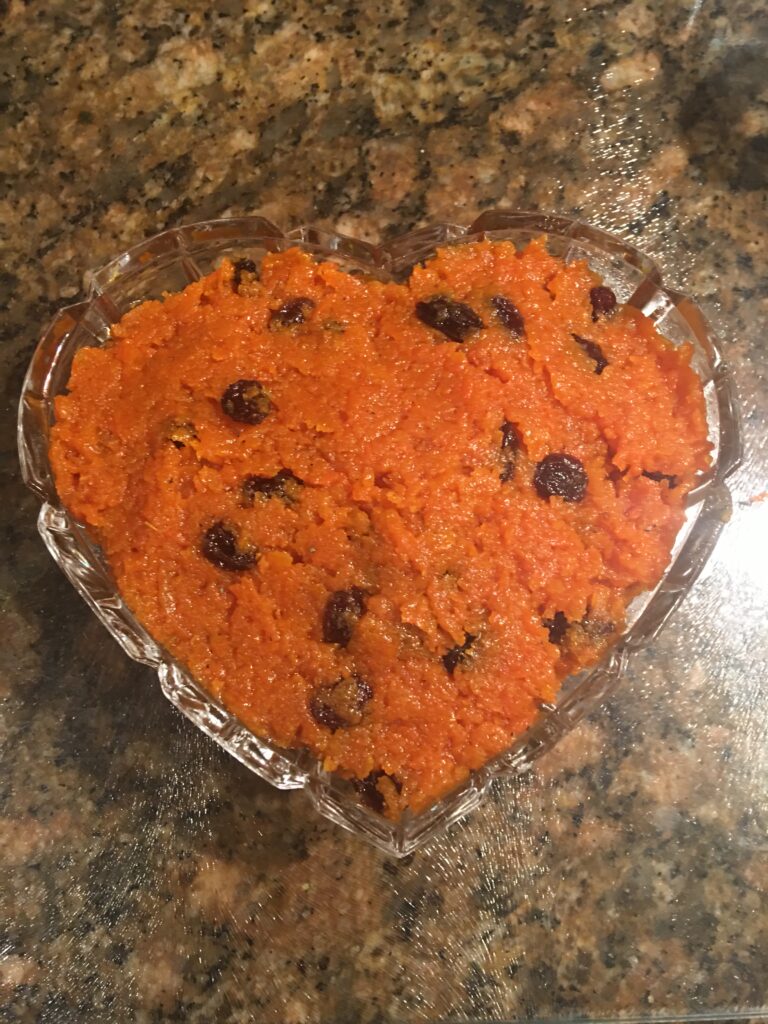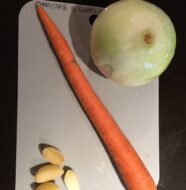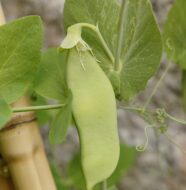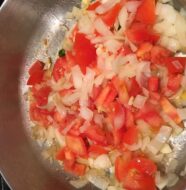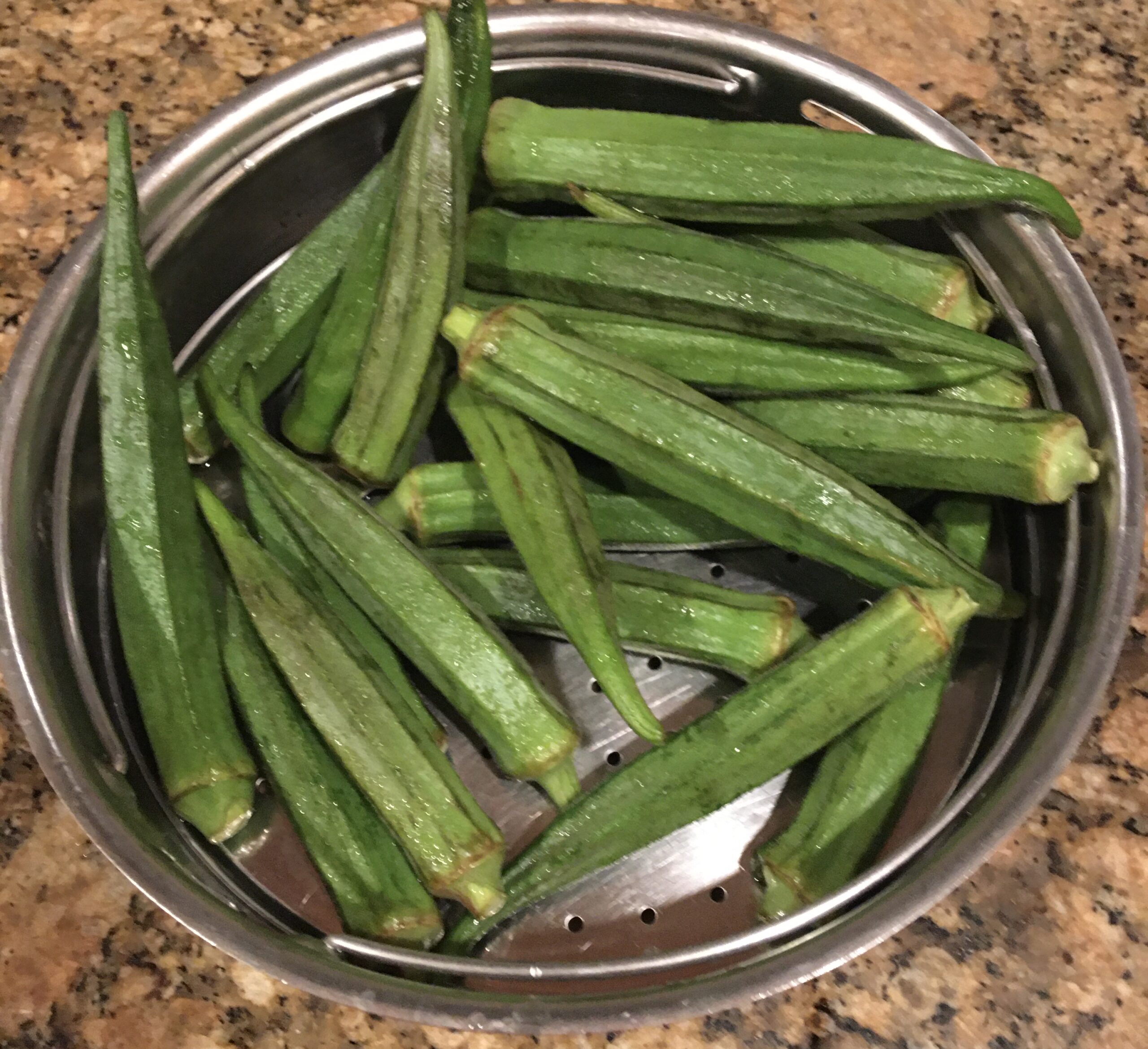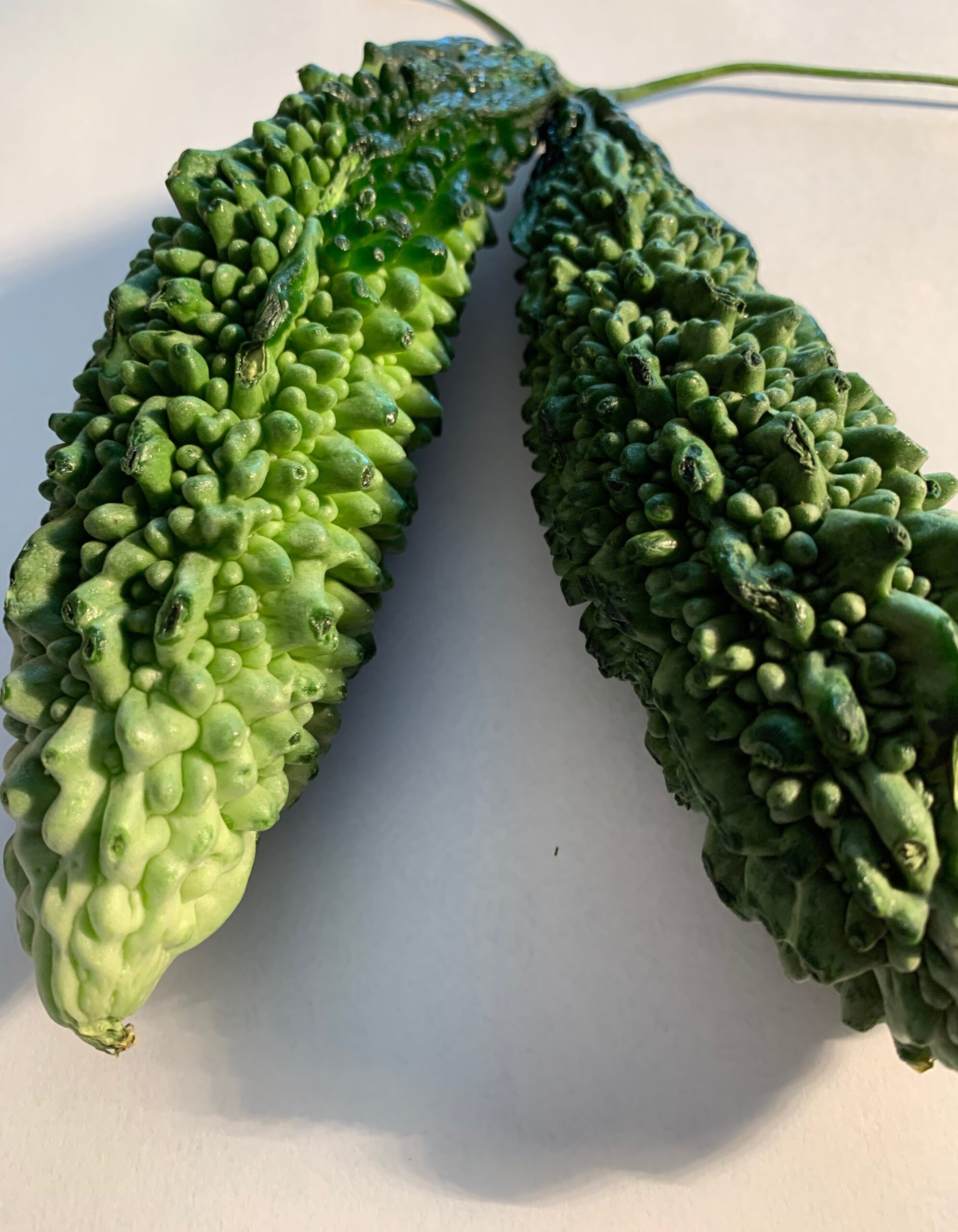Carrots are healthy additions to any diet being naturally sweet, crunchy & delicious to taste. These root vegetables contain health benefiting compounds such as beta carotenes, falcarinol, vitamin A, minerals & anti-oxidants in ample amounts Botanically they are taproots belonging to the Apiaceae family in the genus. Hence the scientific name Daucus Carota. Other Apiaceae members are parsnips, parsley, dill, cumin etc.
Carrot Halwa became popular during the Mughal rule when Emperor Akbar needed vegetarian sweets to entertain the Hindu princess, who he married, from Rajasthan. It was also a delicious dessert used by the British, to feed the Hindu population during parties. Carrot Halwa is a yummy dessert made with grated carrots that are steamed in milk, mixed with sugar and cooked; then garnished with spices, slivered nuts & raisins. The halwa tastes best when served with vanilla ice cream. It is a very popular dessert served in Indian restaurants, loved by one and all besides being a nutritious treat for children.
My aunt Lakshmi Periamma who lived in Delhi visited us in Mumbai with special red carrots and taught my mother (Nagalakshmi) to make “Carrot Halwa”, which subsequently became the favorite weekly dessert in our home while growing up. Today ” Gajjar Halwa with Kulfi” (Indian ice cream) is a popular dessert in many Indian restaurants.
Buying and Storage: While buying look for tender, fresh carrots with a firm texture. Avoid soft flabby roots with surface cuts or mold. Large roots can be an indication of over maturity indicating poor eating quality. Carrots with leaves attached are great for baking and the ones with medium size for juicing. Exposure to sunlight will produce greenish coloration on the top end due to photo pigmentation that can diminish its sweet taste. Twisted or forked varieties are also not recommended.
Prior to storing wash thoroughly to remove any dirt and insecticide; snip the top greens and store in the vegetable compartment. Carrots stay well for 1-2 weeks. Set refrigerator temperature level below 35 degrees F and high humidity to maintain freshness.
History: Carrots were originally cultivated in Afghanistan about 1000 years ago probably as yellow or purple root. Carrot cultivation spread to Spain in the 1100s via the middle East and North Africa. Wild carrot is indigenous to Europe, N. Africa & W. Asia. Based on most historical records the first cultivated carrots were from Persia (Iran) in the 10th century. During Arab E
http://www.carrotmuseum.co.uk/history.html
Story: At a crochet knitting class in the Glades Road library in Florida, the American lady sitting beside surprised me by asking for a recipe for Carrot Halwa. She had eaten the delicious sweet carrots in NewYork at a Diwali festival. She said that all her family members loved vegetarian food and vegetables cooked Indian style with spices.
Carrot Recipes
Carrot Salad (Gajar Kosmalli)
Carrot Soup (Gajar Shorba)
Carrot Sauté (Gajar Thoran)
Fresh Carrot Bake(Gajar Senkna)
Baby Carrot Pickle (Gajar AAchar)
Carrot Halwa (Gajar Halwa)
Nutrition Facts of Carrots (Daucus Carota) 100g raw %DV
| GI =39 ; GL = 3 | Minerals | Vitamins |
| Energy 41kcal (2%) | Sodium 69mg 4.5% | Folates 19 mcg (5%) |
| Carb 9.58g (7%) | Potassium 320mg 6.5% | Niacin 0.983 mg (6%) |
| Protein 0.93g (1.5%) | Calcium 33mg (3%) | Pantothenic acid 0.273 mg (5%) |
| Total Fat0.24g (1%) | Copper 0.045mg (5%) | Pyridoxine 0.138 mg (10%) |
| Cholesterol 0mg (0%) | Iron 0.3mg (4%) | Riboflavon 0.058 mg (4%) |
| Fiber 2.8g (7%) | Magnesium 12mg (3%) | Thiamin 0.066mg (6%) |
| Alpha Carotene 3427 mcg | Manganese 0.143 mg (6%) | Vitamin A 16706 IU (557%) |
| Beta Carotene 8285 mcg | Phosphorous 35mg (5%) | Vitamin C 5.9 mg (10%) |
| Lutein 256 mcg | Selenium 0.1 mcg (<1%) | Vitamin K 13.2 mcg (11%) |
| Zinc 0.24mg (2%) |
Source: USDA National Nutrient data base)https://www.nutrition-and-you.com/carrots.html
Health Benefits of Carrots
- improve vision and boost the immune system
- provide many vitamins and minerals
- prevent heart attacks and protect from certain cancers
- reduce cholesterol and prevent premature aging
- increase skin health and boost oral health
- help guard against food poisoning
- Steamed carrots contain large amounts of beta carotene that is converted to vitamin A, to maintain the health of the immune system, skin, hair & eyes.
- Potassium present in steamed carrots facilitates nerve communication, muscle function, and prevents cramping. 1 cup of steamed carrots contains 410 mg of potassium – almost 9% of DV.
Spice Power
- Rose water lowers stress, anxiety and improves mood, soothes sore throat.
- Saffron strands promotes mental health with safranal and crocin; they regulate neuro chemicals such as Dopamine, Serotonin and Norepinephrine, which help reduce symptoms in moderate depression. Crocin helps prevent age related mental degradation such as Alzheimer’s disease.
- Cardamom contains a compound called Methonolic extract, an antioxidant known to provide relief from stomach cramps, flatulence and help with stomach ulcers.
Method to make Carrot Halwa
- Melt unsalted butter into ghee in a frying pan (if using).
- Keep aside. (5 min.)
- Peel and grate carrots in a food processor or hand grater. (5 min.)
- Cook carrots in a heavy bottom frying pan with milk. (5 min.)
- Add sugar, stir until sugar melts and halwa leaves the sides of the pan. (5 min.)
- Remove pan from heat when carrots become a homogeneous pulp (halwa). (5 min.)
- Add rose water (if using) and mix well. OR
- Mix saffron strands in 1 tbsp. boiling water; pour on carrot halwa. OR
- Peel skin off cardamom, grind with cloves & mix with carrot halwa.
- Fry raisins or cranberries in 1 tsp. oil or ghee until they are plump.
- Garnish with slivered almonds, pistachios, raisins, or
Serve warm Gajar Halwa with a scoop of Vanilla ice cream.
Tips
Time saver: skip melting butter; use ghee available in the Indian Store
Quick Carrot Halwa: Cook carrots in the microwave and mix with 1/2 cup milk powder+ 1 cup sugar; heat with 1/2 cup ghee or oil until homogeneous
Non-dairy/ fat version: grind the carrots in a blender with sugar; microwave for 5 min.
To make ghee from butter: melt it on the stove, until water evaporates & froths on top
Nut
VEGANS : SUBSTITUTE MILK WITH ALMOND / CASHEW/ SOY MILK; GHEE WITH OLIVE OILl
Halwa = soft pulpy sweet dessert

